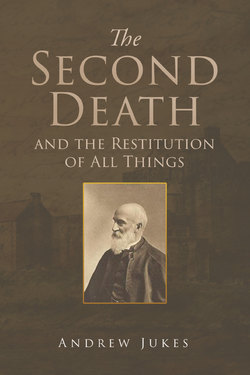Читать книгу The Second Death and the Restitution of All Things - Andrew Jukes - Страница 7
На сайте Литреса книга снята с продажи.
Оглавлениеcame out of the heart of man; but consciously, or unconsciously, he is leading men, not from the letter to the spirit, which would be well,but merely to reject and judge the letter, not seeing how that letter, like Christ's flesh, is incorruptible and shall be glorified. After all, this too perhaps must be done; it was needful that Christ should sufifer and be put to death; but woe to him who rejects and slays the human form in which, for us, God's truth has been manifested. Yet for this, too, mercy is in store, for they do it ignorantly in unbelief.
The Bible then resembles, yet differs from, other books, exactly as the flesh of Christ resembles and yet differs from the flesh of other men. All the utterances of good and true men are in their measure aspects of the mystery of the Incarnation, being partial revelations in human form of God's eternal Truth and Wisdom; even as every good and true man also in his measure is another aspect of the same mystery, for God has said, “I will dwell and walk in them,” and so human forms and flesh and blood are by grace God's tabernacles. But the Incarnation and Manifestation of the Divine Word in the person of our Lord Jesus Christ was pre-eminent, and infinitely beyond what the indwelling of the Word is in other good men, though Christ took our flesh and infirmities, and we may be filled with all the fulness of God. In like manner the Incarnation and Manifestation of the Word of God in the letter of Scripture is pre-eminent, and differs from other books exactly as the flesh of Christ differs from the flesh of other men. Instead of believing therefore that, because Scripture is human, and has grown with men, and has marks of our weakness and shame and death upon it, therefore it must perish and see corruption, I believe it can never perish or see corruption. I see it is human; I see that it has grown; I see it can be judged and wounded. I believe too that it has in its composition exactly so much of perishableness as Christ's flesh had when He walked here with His apostles. But it is like Christ's body, the peculiar tabernacle of God's truth. And those who walk by it day and night know this, for they have seen, as all shall one day see, it transfigured.
I proceed to shew that like Christ's flesh, and indeed like every other revelation which God has made of Himself, the letter of Scripture is a veil quite as much as a revelation, hiding while it reveals, and yet revealing while it hides; presenting to the eye something very different from that which is within, even as the veil of the Tabernacle, with its inwoven cherubim, hid the glory within the veil, of which nevertheless it was the witness; and that therefore, as seen by sense, it is and must be apparently inconsistent and self-contradictory. Both these points are important;nfor if God's revelations of Himself are veils, even while they are also manifestations ; and if therefore they are and must be open to the charge of inconsistency and contradiction; this fact will help us to understand, not only why Scripture is what it is, but also how to interpret its varied truths and doctrines.
And here, that we may see how all God's revelations are alike, let us look for a moment at those other revelations of Himself, the books of Nature and Providence, which God has given us. Are they not both veils as well as revelations, the first sense-readings of which are never to be relied on?
First, as to Nature, which has been called God's formed word, and which beyond all question is a revelation of God. Yet how does it reveal Him? Is it not also a veil, hiding quite as much as it reveals of Him ? Is it not a fact that our sense-readings, even of the clearest physical phenomena, such as the rising and setting of the sun, are opposed to the truth, and need to be corrected by a higher faculty? Is it not further a fact that Nature hides almost more than it reveals of God our Saviour? Does it not seem even to misrepresent Him ? Does it not seem also to contradict itself, with force against force, heat against cold, darkness against light, death against life, its very elements in ceaseless strife everywhere? On one side shewing a preserver, on the other a destroyer; here boundless provision for the support of life; there death reigning. We know that this contradiction has been so strongly felt by some, that on the ground of it they have denied that the world is the work of one superintending mind, and have argued that it must be either the result of chance or the work of eternally opposing powers. Are there not here exactly the same contradictions and the same difficulties which we find in Scripture? Either therefore we must say. Nature is an inconsistent and lying book, and therefore we will not believe the testimony either of its barren rocks or smiling cornfields; or else we must confess some veil or riddle here. It is precisely the same riddle which we find in every other revelation.
